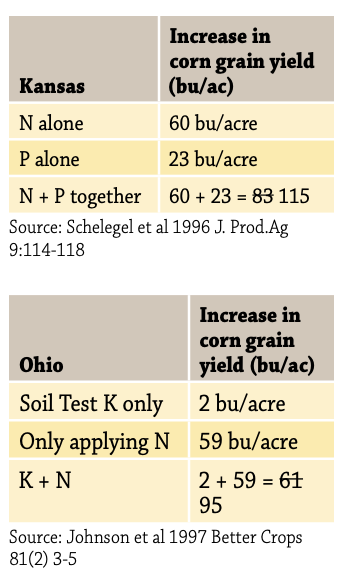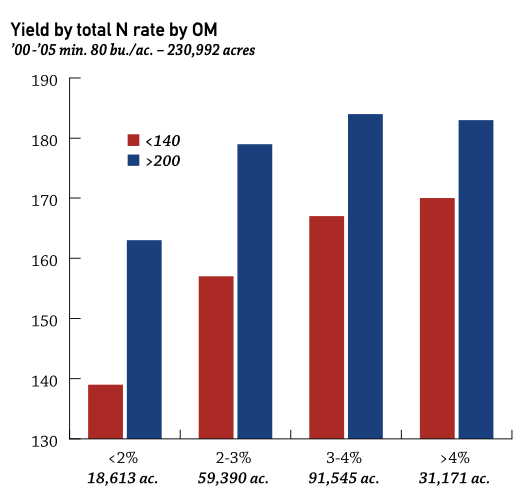Is it possible that 3 and 2 can equal more than 5? That’s the concept of synergy — when the “whole equals more than the sum of the parts”. Within our company, we talk a lot about agronomic synergies. We see it in data analysis and we believe that discovering and capitalizing on agronomic synergies is an exciting part of our future in using data to make better decisions.
Listen to Dr. Scott Murrell, director of International Plant Nutrition Institute, talk about nutrient research. “Most of the studies I read look at plant responses to one nutrient, and of those, nitrogen (N) gets most of the attention. But occasionally, more accurately, rarely, I come across a study that looks at two or more nutrients.” He goes on to cite two studies.
Both are great examples of the power of agronomic synergies.
Because nitrogen gets the most attention, our customers have been using their data to refine their N rates from our beginning 17 years ago. Any deep dive into their data reveals what appears to be the “right” rate that differs dramatically within parts of fields. One of the earliest realizations we had is just how fundamentally “wrong” our historic approaches had been. Remember the old formula — 1.2# of N per bushel of yield goal less credits for manure, legumes, and other sources of applied N.
Using that approach would lead us to put more applied nitrogen on our best and frequently highest organic matter soils because they have the highest yield potential. But our finding years ago, showed that our best soils have more ability to furnish soil-supplied N from mineralization than our lighter soils. The data would show that we actually need more applied N per bushel produced on our lighter soils than our best soils.

But even that statement is a generalization that captures only one (yield by organic matter by applied rate) of the many synergies that are part of the nitrogen puzzle. We’re excited to empower growers and advisors to discover and capture all the other agronomic synergies that are waiting to be unlocked in their fields and their data!!
Our goal is to make 3 and 2 turn into 32 = 9!!!
Originally published in Corn and Soybean Digest.
